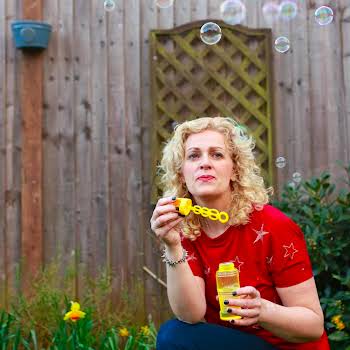By Sarah Gill
22nd Mar 2024
22nd Mar 2024
A word that’s bandied about quite a bit, narcissism exists on a spectrum — but how far do our sympathies extend?
As with any and all phraseology relating to psychology and relationships, narcissism has become an overused and misplaced buzzword.
Writing a colleague or employer, friend or foe, off as a narcissist has become commonplace where a person displays signs of an inflated ego, lack of self-awareness, or sense of entitlement.
However, while these are all factors at play within genuine narcissists, it’s not quite so clear-cut. Existing on a spectrum ranging from non-pathological narcissistic traits to a diagnosable personality disorder, anyone and everyone can show tendencies towards narcissism.
Advertisement
So, who deserves our empathy, and who do we decide to cut out of our lives?
Defined as an extreme self-involvement that makes a person disregard the feelings of others, there are two distinct types of narcissism; the more common grandiose narcissism and the more subtle covert narcissism.
Grandiose narcissism refers to charismatic, extroverted people with an exaggerated sense of self-importance who are preoccupied with themselves and lack empathy for others. Commonly preoccupied with fantasies of wealth and power, a grandiose narcissist surrounds themselves with people who serve a purpose, casting them aside once they’ve served their purpose.
On the other hand, a covert narcissist is much harder to spot. Similarly obsessed with superiority, people who display covert behaviours will likely lack the charisma and confidence typically associated with narcissism. They’re passive-aggressive, suffer internally with insecurities and have a victim mentality, comparing, criticising and competing with those around them.
While many people reading this may see some aspect of themselves in these behaviours, it does not mean that you are an out-and-out narcissist — and it’s important to note that not every person who displays these characteristics has Narcissistic Personality Disorder (NPD). In fact, this diagnosis is quite rare.
We all fall somewhere on the narcissism continuum, NPD is a pervasive pattern often masked by a superiority complex to such an extent that it affects normal functioning in social and professional settings.
Advertisement
Discussions around narcissists are often devoid of compassion, advising those in contact with one such person to sever ties and avoid them at all costs. However, given that these toxic traits range in severity, where do we decide to draw the line?
For those recovering from trauma suffered at the hands of a narcissist with destructive tendencies, having compassion for yourself first is crucial. It is said that pathological narcissists feed off empathy, using it as a tool for further manipulation.
However, it’s important that basic humanity is not lost during this healing process. Understanding these behaviours is very different from excusing them, just as we can attempt to feel sympathy for the experiences suffered that created a narcissist from a safe distance.
While the pain caused by narcissism is often inexplicable and inexcusable, it’s been reported that an NPD diagnosis commonly stems from childhood trauma.
This begs the question, are we better able to rationalise narcissism when there is a genuine personality disorder behind it, or is it easier to write off bad behaviour when it’s just a toxic personality trait, or should we be wary of those who show signs of narcissism right from the jump?
This article was originally published in May 2022.
Advertisement























